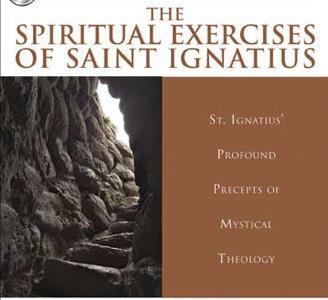The problem of spiritual discernment:
The classic text on the question is The Spiritual Exercises of St. Ignatius, founder of the Society of Jesus (Jesuits). I read it eagerly, but the section on Rules for the Discernment of Spirits sent a chill down my spine:
“It is characteristic of the evil one to transform himself into an angel of light, to work with the soul in the beginning, but in the end to work for himself. At first he will suggest good and holy thoughts that are in conformity with the disposition of a just soul, then, little by little he strives to gain his own ends by drawing the soul into his hidden deceits and perverse designs.”
Evidently, the evil one is a very good con man. Could my voice be a clever deception leading me down the garden path? How could I tell? St. Ignatius explains,
“We must pay close attention to the course of our thoughts, and if the beginning, middle, and end are all good and directed to what is entirely right, it is a sign that they are inspired by the good angel. If the course of the thoughts suggested to us ends in something evil, or distracting, or less good than the soul had previously proposed to do; or if these thoughts weaken, disquiet, or disturb the soul by destroying the peace, tranquility, and quiet which it had before, this is a clear sign that they proceed from the evil spirit, the enemy of our progress, and eternal salvation.”
My prayers did suggest “good and holy thoughts.” God had certainly not told me to do anything wrong. On the other hand, the prayers very much disquieted my agnostic soul. Well, it is actually more complicated than that. The moments when I most “dwelt in God” were calm and reassuring. But I was not always comfortable with what I was told. And I was most disturbed when I was not actually praying, but wondering what people would think if I told them I talk with God—and He talks back!
________
Learn more about spiritual discernment.
